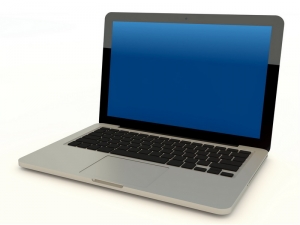Only OEM inertia and brand awareness keep driving Windows 'sales' (rentals)

Summary: The era of Windows monopoly is ending or has ended because Microsoft can no longer compete with the better-priced Linux-powered rivals
FOR A MERE 250 pounds we recently bought a laptop plus tablet bundle (both HP-made and of high build quality). The laptop runs GNU/Linux and the tablet uses Android (i.e. Linux-powered). No Windows required. Microsoft cannot compete with such pricing, it can only pretend to.
According to a media site that
received money from Microsoft (not disclosed), HP's attempts to make a Windows-based Chromebook competitor is terrible. This isn't the first time this year that we see
sources close to Microsoft speaking of the rise of Chromebook and the problem of the relatively bloated Windows. Vista 8 was
terrible not just because of bloat. The article states: "Setting up a Chromebook and getting to work with the most up-to-date software takes about three minutes, maybe five if you’re slow. That’s not the case with the HP Stream 13, although it’s much improved over computers from just a few years ago.
"It took me about 10 minutes before I could use the Windows laptop since it was going though various setup processes. Ah, but the updates."
And that's just the beginning. The headline says that "the $229 HP Stream 13 isn’t a Chromebook killer" and it's easy to see why. This is how Simon Phipps
put it: "It’s a mistake to try to squeeze Windows into hardware designed for ChromeOS. You end up with a laptop that’s so under-powered it’s best for cloud-hosted applications (as the HP/Microsoft TV advertising in the UK implies). But you still have to maintain anti-malware software, apply updates, manage drivers, buy upgrades and so on.
"So you have sbought yourself the functionality of a Chromebook but with the upkeep of Windows. Why on earth would anyone think that was a good deal?"
GNU/Linux in its classic form (e.g. with GNOME or KDE desktop) may not be gaining in terms of installed base fast enough, but with operating systems like ChromeOS, Android, SteamOS, FirefoxOS, webOS, Tizen, Sailfish OS etc. Linux sure is taking over the digital world, not only in the back end (servers, routers, 'dumb' embedded devices, and supercomputers). CES 2015 shows plenty of evidence of that right now, even if the "L" word isn't always mentioned/advertised.
Microsoft says it 'loves' Linux not because it really loves GNU/Linux but because GNU/Linux inevitably became a dominant, undefeatable force. Even Microsoft's biggest customers use GNU/Linux. Microsoft loves Linux like Russians love Putin.
⬆

